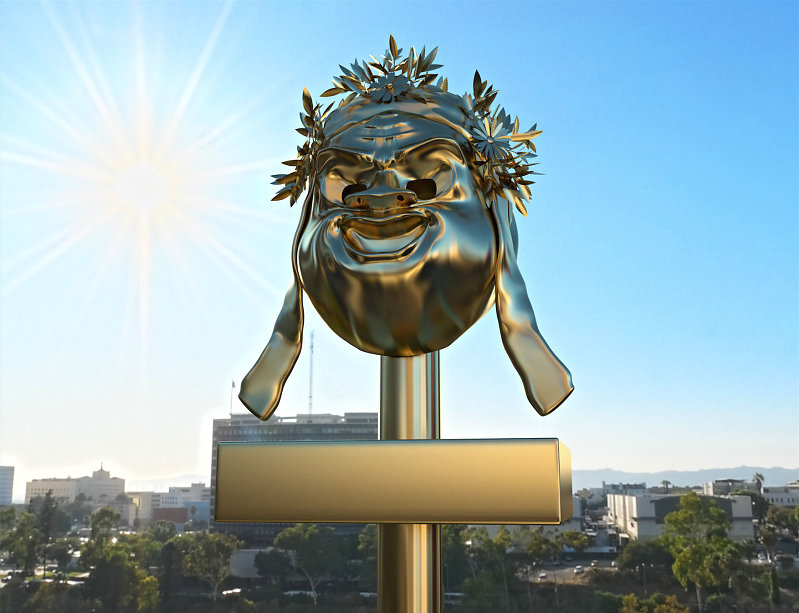Pennacchio Argentato, Survival Upgrade, 2013 and Dude where is my career?, 2009
In May 2013, footage emerged in the media of a man waving a bloodied meat cleaver in the air whilst reciting the mantra to the camera: ‘You [people] will never be safe’. The phrase formed part of a political message delivered in the style of a home video to the British public by the man who, along with one other, had hacked a British soldier to death on the streets of Woolwich just moments before. The footage was threatening, macabre and darkly arresting; its rapid dissemination on the Internet pointed to a grim, voyeuristic fascination with the brutal crime and its motivations.
It is this interaction of human events with the complex machinations of technology that appears to fascinate collaborators Pasquale Pennacchio and Marisa Argentato. The two artists wrenched the phrase ‘you will never be safe’ from this context as part of their exhibition ‘Survival Upgrade’ and hung it in the centre of Van Horbourg, a non-profit curator’s collective operating within a temporary art space in Zurich run by founders and co-directors Sandra Oehy and Roger Meier. Far from the original setting of the crime, the sinister words were objectified by the artists, who frequently use the technologies of fabrication and projection to attempt to engage with the hypnotic and transformative powers of technology.
Pennacchio Argentato cut the words out of Perspex with a light-transmitting film on one face. Behind this, a projector was set up at a distance to transmit swirling fractal images through the Perspex and onto the front surface of the text. The overall effect was that of gaudy kitsch, visually arresting when you first enter the space and face the text, but less convincing as you move around and to the rear of it. This was largely due to the material itself, which is flat and flimsy, slightly undermining its own apparent status as the centrepiece of the exhibition. The flatness of the material did however have one curiously confounding effect, which was to negate the very depth of the images projected onto it. By turning the freestanding words into a screen upon which the abstract receding fractals were projected, the artists managed to debunk any conventional optical illusion of depth commonly associated with filmic projection, or indeed with any projection onto the solid wall of a gallery, because in this case the audience could walk behind the ‘screen’. The projection, in other words, was revealed for the ruse it really is, while at the same time the words lost their meaning in deference to the hypnotic optical effects they have become a latent surface for.
In past exhibitions, notably ‘Five o’clock shadows’ at T293 Gallery, Rome in 2010 and the group show ‘Where Language Stops’ at Wilkinson Gallery in London in 2011, Pennacchio Argentato have exhibited immense planar forms cast from concrete, wood and fibreglass that slide, fold, slither or droop lazily across the floors and walls of galleries. But in the second part of ‘Survival Upgrade’, the artists’ almost comically anthropomorphic sculptures were reinterpreted as prosthetic human limbs cast out of Carbon-Kevlar, a material favoured by the US army for the manufacture of soldiers’ combat helmets and other protective gear. This is a new material for the artists, who have previously worked with cast concrete and Perspex, yet the experiment seems successful. The Carbon-Kevlar appears both sleekly organic and awkwardly mechanistic, able to mould itself symbiotically with the human body whilst retaining the appearance of a hard, shiny shell, cast off like the plasticized robotic detritus of some future world in which the technological extension of the body has already outlived its usefulness. These apparatuses occupied the periphery of the space in which the text formed the centrepiece, yet they were by no means secondary to it. Flung to the edges of the white room by some centrifugal force, either adhering to the walls or scattered about the floor for the viewer to pick his or her path between, the prosthetic limbs were rendered as junk, as the bodies they were made for have evolved – or mutated.
http://www.frieze.com/shows/review/pennacchio-argentato/
Read Full Article

